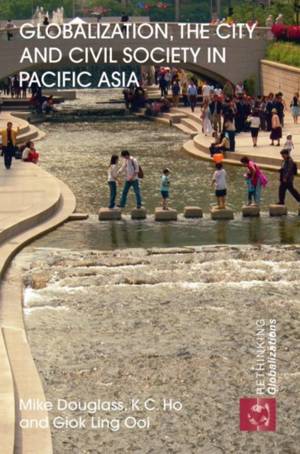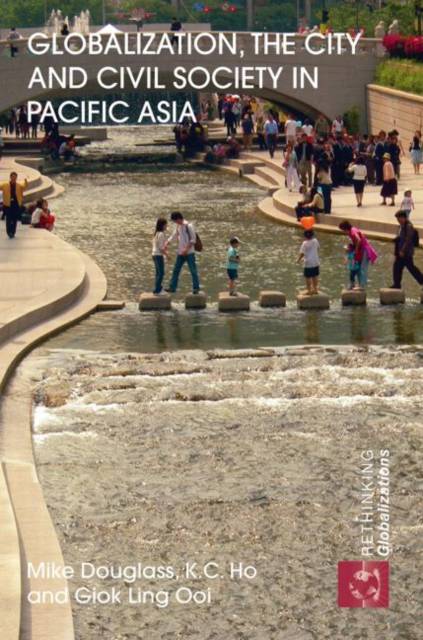
Door een staking bij bpost kan je online bestelling op dit moment iets langer onderweg zijn dan voorzien. Dringend iets nodig? Onze winkels ontvangen jou met open armen!
- Afhalen na 1 uur in een winkel met voorraad
- Gratis thuislevering in België vanaf € 30
- Ruim aanbod met 7 miljoen producten
Door een staking bij bpost kan je online bestelling op dit moment iets langer onderweg zijn dan voorzien. Dringend iets nodig? Onze winkels ontvangen jou met open armen!
- Afhalen na 1 uur in een winkel met voorraad
- Gratis thuislevering in België vanaf € 30
- Ruim aanbod met 7 miljoen producten
Zoeken
Globalization, the City and Civil Society in Pacific Asia
The Social Production of Civic Spaces
€ 90,45
+ 180 punten
Omschrijving
Globalization, the City and Civil Society in Pacific Asia presents a detailed examination of the underlying issues of urban life in the Far East.
Leading authorities on globalization and politics in the region cover key themes of continuity and change:
- relationships between civil society and the production of urban spaces. Chapters focus on various types of 'civic spaces' that provide spaces for life that are autonomous from state and capital
- ten case studies explore a wide variety of contexts ranging from spaces where lower classes congregated in ancient Chinese cities to cyberspaces of the contemporary internet
- the history and role of civil society in social and political philosophies of societies in the Pacific Asia region
- tendencies and issues related to specific types of civic spaces in a given city. Several studies find that great stress has been placed on long-standing community and civic spaces
- common themes, patterns and issues as well as singularities of each particular context. In this way it can contribute to the broader (mostly Western) literature on society and space
- the future of cities in Pacific Asia from the perspective of civic space. Can civic spaces be routinely created rather than appropriated through civil society-state-economy struggles?
Most research on globalization and civil society has focused on the West, this unique book brings together a tight analysis and a series of ten case studies on Pacific Asian countries. It also theorizes and empirically explores the relationships between civil society and the production of urban spaces.
Specificaties
Betrokkenen
- Uitgeverij:
Inhoud
- Aantal bladzijden:
- 294
- Taal:
- Engels
- Reeks:
Eigenschappen
- Productcode (EAN):
- 9780415599597
- Verschijningsdatum:
- 30/07/2010
- Uitvoering:
- Paperback
- Formaat:
- Trade paperback (VS)
- Afmetingen:
- 156 mm x 234 mm
- Gewicht:
- 439 g

Alleen bij Standaard Boekhandel
+ 180 punten op je klantenkaart van Standaard Boekhandel
Beoordelingen
We publiceren alleen reviews die voldoen aan de voorwaarden voor reviews. Bekijk onze voorwaarden voor reviews.










